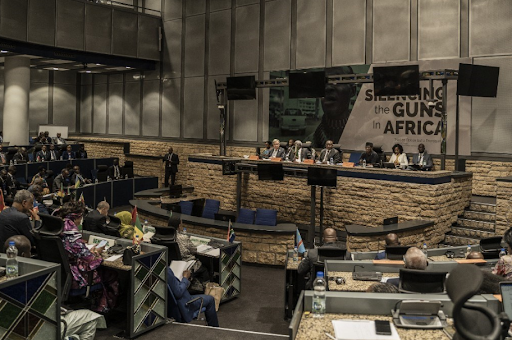
China's Special Envoy for the Middle East, Zhai Jun: China looks at relations with Syria from a strategic perspective, and within a comprehensive vision for the region
Syrian President Bashar al-Assad discussed, today, Saturday, during his meeting with the Chinese government's special envoy to the Middle East, Zhai Jun, the Syrian-Chinese relations, common perceptions of the bilateral relationship, and China's vital role throughout this region.
President al-Assad pointed out that the most important positive change that occurred in the world was represented by the Chinese role, "which is escalating in a calm and balanced manner."
President al-Assad praised the Chinese mediation, which culminated in the rapprochement between Saudi Arabia and Iran and the improvement of relations between them, in a way that will be reflected in the stability of the entire Middle East region, as he described it.
He also pointed to the importance of the Belt and Road Initiative in achieving economic development and cooperation, stressing that "confrontation has always been primarily economic. Therefore, liberation from the restriction of dealing in US dollars has become necessary."
He added, "This role is presenting a new model in politics, economy and culture, especially as it is based on the principle of achieving stability, peace and profit for all," noting that "the whole world today needs the Chinese presence, politically and economically, in order to restore balance to the global situation, especially In light of the Russian-Chinese relations, and the strong international space that the BRICS alliance represents, capable of creating a multipolar international system.
He pointed out that the BRICS countries can play a leading role in this field, in addition to the option of adopting the Chinese yuan in trade transactions between countries.
Al-Assad stressed that Syria does not forget that China stood by its side during the war in order to defend Syrian sovereignty, in accordance with international law and the United Nations Charter, and that it appreciates all the assistance provided by Beijing during the earthquake period.
For his part, the Special Envoy, Zhai Jun, conveyed to President Assad the greetings of Chinese President Xi Jinping, and his keenness to achieve greater results in bilateral relations, stressing that China views relations with Syria from a strategic perspective, and within a comprehensive vision for the region.
Zhai Jun expressed his country's satisfaction with the victory achieved by the Syrian people in their battle against terrorism, "because it is a victory for all countries that defend their sovereignty and dignity," stressing that Beijing "will stand with Syria in international forums, in word and deed, in defense of truth and justice, and will support its battle." Against hegemony, terrorism and external interference.
Zhai Jun expressed China's support for the positive developments regarding the rapprochement path between Syria and the Arab countries.






















































